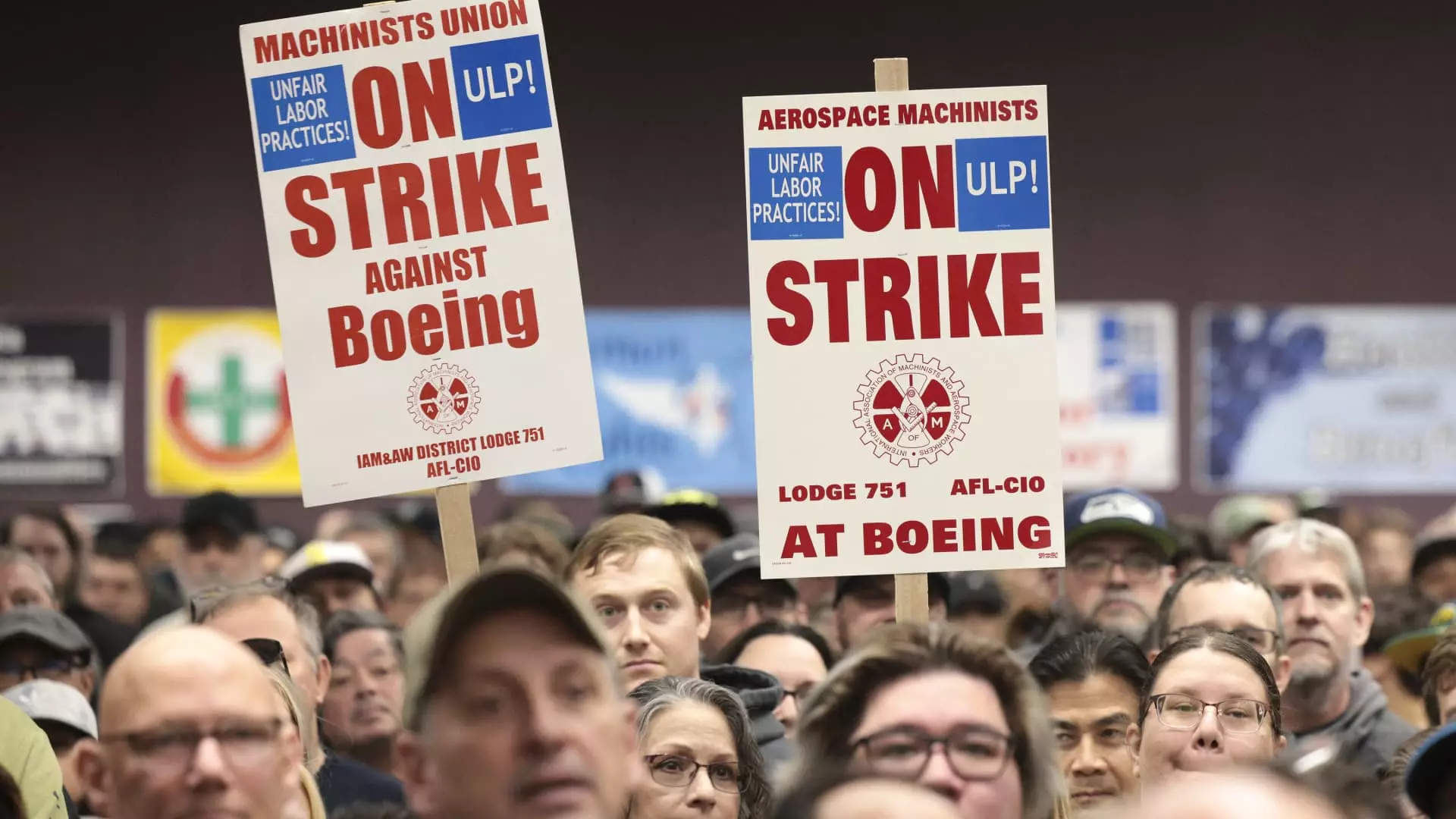Boeing, one of the largest aerospace manufacturers globally, found itself in a precarious situation recently due to a significant strike involving its machinists’ union, the International Association of Machinists and Aerospace Workers District 751. This labor dispute, which began on September 13, saw more than 30,000 machinists walk off the job, rejecting a tentative agreement that proposed a 25% wage increase over four years. The atmosphere was tense, with the union voicing its discontent over a lack of negotiation in Boeing’s early offers, leading to a month-long disruption of aircraft production.
As of Saturday, the union announced the details of a new contract proposal that could potentially bring the strike to an end. The highlights of this plan include a remarkable 35% wage increase spread over four years, a substantial signing bonus of $7,000, guaranteed annual bonus payouts, and enhanced contributions to 401(k) retirement plans. These enhancements demonstrate a significant pivot in the company’s approach, possibly influenced by the pressures of ongoing labor disruptions and economic pressures due to multiple operational challenges.
The involvement of Acting U.S. Secretary of Labor Julie Su has proven instrumental in facilitating negotiations between the union and Boeing. Her meetings with both parties underscore the government’s recognition of the importance of labor relations within corporate dynamics, especially in a sector as critical to the U.S. economy as aerospace. The union’s statement following the negotiations hinted at a positive turning point, encouraging members to consider the new proposal, emphasizing that it reflects the needs and concerns of the workforce.
Despite the potential resolution of this labor dispute, Boeing faces broader financial difficulties. The company is currently navigating a tumultuous period marked by a safety crisis linked to the 737 Max jets and a staggering projected loss of approximately $5 billion in its commercial and defense sectors. These struggles illustrate the complex landscape Boeing must traverse, as it is not just about labor negotiations but also about recovering its financial health and reputation.
The potential ratification of this new proposal on Wednesday may signal a triumphant moment for Boeing’s new CEO, Kelly Ortberg, who stepped into office in August. His tenure has already been marked by decisive moves, including a workforce reduction plan cutting 10% of its employees and the discontinuation of 767 production when current orders are fulfilled by 2027. The forthcoming contract outcome may provide Ortberg with the momentum needed to steer Boeing toward a more stable future amidst the turbulence it has faced.
Ultimately, the ratification vote will not only determine the immediate fate of over 30,000 machinists but will also play a critical role in Boeing’s operational recovery strategy. As the aerospace giant looks to overcome significant challenges, this moment serves as an important reminder of the intricate relationship between company management and labor forces, which is essential for fostering stability and growth in such a crucial industry.


Leave a Reply